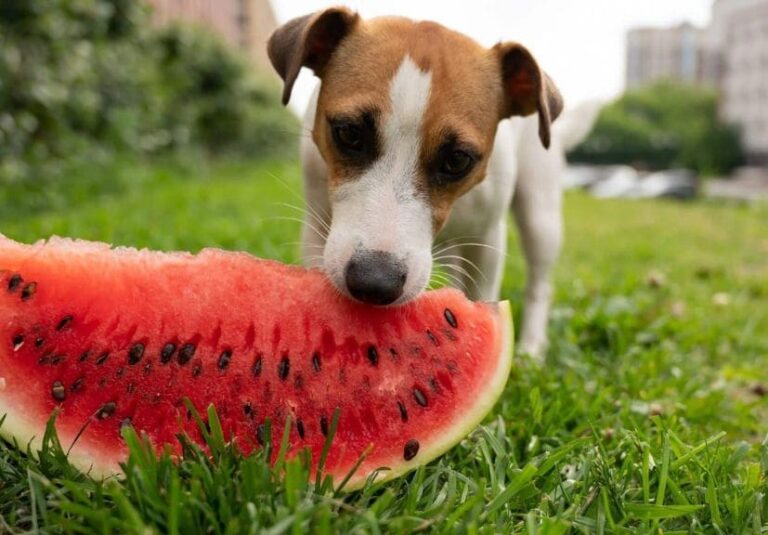Nutritional Benefits of Spinach for Dogs
Spinach is a powerhouse of nutrients, so it’s often hailed as a superfood for humans. But are the same benefits true for dogs? Let’s examine why spinach could be a good addition to your dog’s diet in moderation.
Rich in Vitamins and Minerals
Spinach is loaded with essential vitamins and minerals that contribute to overall health. Vitamin A, Vitamin C, and Vitamin K are particularly abundant in spinach. These vitamins play crucial roles in the following:
- Vitamin A: Promoting healthy skin, vision, and immune function in dogs.
- Vitamin C: Acting as an antioxidant to help fight off free radicals and support the immune system.
- Vitamin K: Important for blood clotting and bone health.
Additionally, spinach contains folate, iron, and calcium, which are necessary for maintaining strong bones and healthy blood.
Antioxidants and Fiber
The antioxidants in spinach, such as beta-carotene and lutein, help protect cells from oxidative stress, which can reduce the risk of chronic diseases in dogs. Spinach is also rich in fiber, which supports digestive health and can aid in preventing constipation.
This makes spinach a potentially beneficial treat, especially for older dogs needing more antioxidants.
Low-Calorie Option
Spinach can be a low-calorie dog snack option on a weight management plan. It’s nutrient-dense, meaning it provides a lot of vitamins and minerals without contributing to weight gain.
Potential Risks of Feeding Spinach to Dogs
While spinach has clear nutritional benefits, some risks are associated with feeding it to dogs. Understanding these risks is key to deciding whether to include spinach in your dog’s diet.
Oxalates and Kidney Problems
One of the primary concerns with spinach is its high oxalate content. Oxalates can bind with calcium in the body, potentially leading to calcium oxalate stones or kidney problems in some dogs, especially if spinach is consumed in large quantities.
This doesn’t mean spinach is inherently harmful to all dogs, but it should be fed in moderation, particularly for dogs with pre-existing kidney conditions. For such dogs, asking, “Can dogs eat raw spinach?” is especially important since raw spinach contains higher oxalate levels than cooked spinach.
Digestive Sensitivity
Some dogs may experience gastrointestinal issues like vomiting or diarrhea after eating spinach. Introducing spinach too quickly or in large amounts can cause upset stomachs in sensitive dogs. The best way to avoid this is by first feeding spinach in small quantities and monitoring your dog for any adverse reactions.
Thyroid Issues
Another concern with feeding spinach to dogs is its potential to interfere with thyroid function. Spinach contains goitrogens, compounds that can interfere with thyroid hormone production, particularly if fed in large amounts over a long period.
Allergic Reactions
While rare, some dogs can develop an allergic reaction to spinach. If your dog shows signs of food allergies, such as itchy skin, swelling, or excessive licking, it’s best to discontinue feeding spinach and consult your vet.
How to Safely Introduce Spinach to Your Dog’s Diet?
Now that we’ve discussed the benefits and risks, the next question is: can dogs have spinach safely? The answer is yes, but it must be done correctly. Here’s how you can safely add spinach to your dog’s diet.
Portion Control is Key
Like any new food, spinach should be introduced gradually and in small amounts. Start with a few steamed or blanched spinach leaves and monitor your dog for any adverse reactions. If your dog tolerates it well, you can occasionally offer spinach as a treat.
How much spinach for dogs is safe? Generally, a small amount – like a tablespoon of cooked spinach mixed into their regular food – should be enough. Avoid feeding large quantities frequently, as this could lead to issues related to oxalate accumulation.
Cooked vs. Raw Spinach: What’s Better?
Many dog owners ask, can dogs eat raw spinach? While dogs can technically eat raw spinach, it’s often harder for them to digest, and the raw form contains higher levels of oxalates. For this reason, it’s recommended to lightly cook or steam the spinach before feeding it to your dog. Cooking spinach helps reduce the oxalate levels and makes it easier for dogs to digest.
For dogs with digestive sensitivity, cooked spinach is a safer option. If you’re wondering if dogs can eat cooked spinach, the answer is yes, and it’s often a better choice than raw spinach.
Avoid Seasoning
When preparing spinach for dogs, make sure it’s plain and unseasoned. Salt, butter, garlic, and onions – often added to spinach in human dishes – are toxic to dogs. Always serve plain cooked spinach without any added seasonings.
Spinach Alternatives for Dogs
If you’re concerned about the risks of spinach, consider other leafy greens and vegetables that offer similar health benefits but pose fewer risks. Here are some alternatives to spinach for dogs:
Kale
Kale is another leafy green packed with nutrients but doesn’t contain as many oxalates as spinach. Kale is rich in vitamins A, C, and K, making it an excellent addition to your dog’s diet in moderation.
Carrots
If you ask if dogs can eat carrots, the answer is yes! Carrots are a great crunchy treat that’s full of fiber and beta-carotene. They’re easy to digest and can be given raw or cooked.
Green Beans
Green beans are another low-calorie vegetable that’s safe for dogs. They’re full of fiber and vitamins and can be a great alternative to spinach for dogs with kidney or thyroid issues.
Broccoli
Broccoli is another option that provides a wide range of nutrients, including vitamin C, fiber, and folate. However, it should be fed in moderation as it can cause gas in some dogs.
What to Do if Your Dog Eats Too Much Spinach?
Even if spinach is a healthy addition to your dog’s diet, too much of a good thing can still cause problems. If your dog accidentally consumes a large amount of spinach, here’s what you should do:
Watch for Symptoms
Monitor your dog closely for any signs of discomfort or illness. Symptoms of overconsumption include:
- Vomiting
- Diarrhea
- Excessive thirst (a sign of potential kidney issues)
- Lethargy
If your dog starts showing these symptoms, contact your veterinarian immediately.
Consult a Veterinarian
If your dog eats a large quantity of spinach or shows signs of distress, it’s essential to seek veterinary care. Your vet may recommend tests to ensure your dog’s kidney function isn’t affected by the high oxalate content.
Conclusion: Should You Feed Your Dog Spinach?
So, can dogs eat spinach? Yes, dogs can eat small amounts of spinach, which can be a healthy addition to their diet. The leafy green provides several essential nutrients, such as vitamins A, C, and K, along with fiber and antioxidants that support overall health. However, due to its high oxalate content and the risk of digestive upset, spinach should be fed sparingly and never as a staple food.
If you’re unsure about adding spinach to your dog’s diet, consult your veterinarian to determine if it’s appropriate based on your dog’s specific health needs. And, of course, always monitor your dog for any signs of discomfort when introducing new foods. For more tips and advice on dog nutrition, visit PetJazeera, where we cover all aspects of your pet’s health and wellness.
FAQs About Dogs and Spinach
Here are some common questions dog owners have about feeding spinach to their dogs.
Is Spinach Good for Dogs to Eat?
Yes, spinach is good for dogs to eat in moderation. It offers essential nutrients like vitamins, antioxidants, and fiber that can benefit your dog’s health.
Can Dogs Eat Raw Spinach, or Should It Be Cooked?
While dogs can eat raw spinach, cooking is a better option because it reduces the oxalate content, making it safer and easier to digest.
Is Spinach Safe for Dogs with Kidney Issues?
For dogs with kidney issues, spinach should be avoided due to its high oxalate content, which can exacerbate kidney problems.
Can Puppies Eat Spinach?
Puppies can eat spinach in small amounts, but it’s important to introduce it gradually and consult your vet, especially for young puppies with developing digestive systems.




